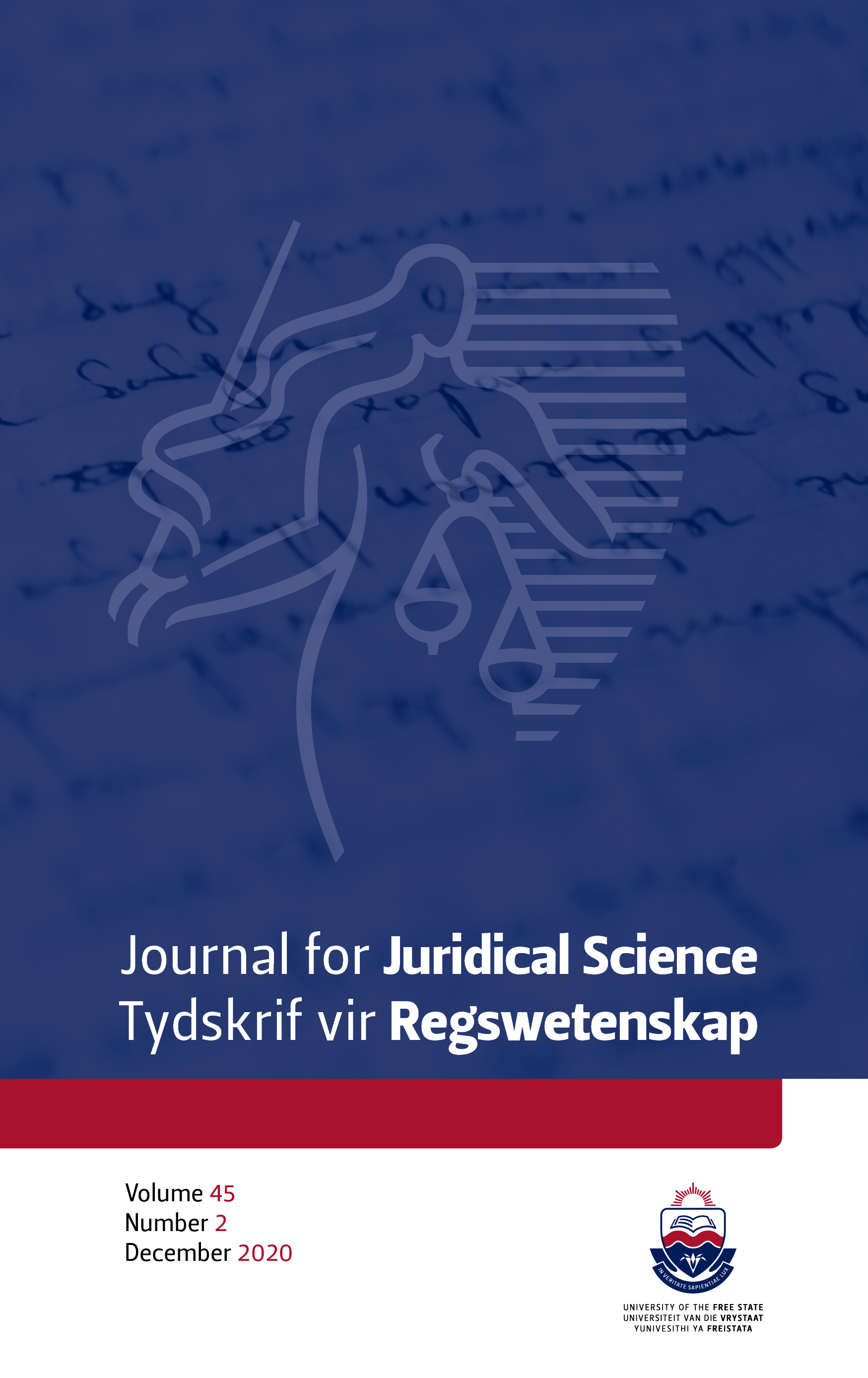Constitutional matters and arguable points of law: Reflections on the General Council of the Bar, Jiba and Mrwebi jurisprudence
DOI:
https://doi.org/10.18820/24150517/JJS45.i2.1Abstract
Over the past few years, the series of cases implicating Advocates Jiba and Mrwebi, two erstwhile senior members of the office of the National Director of Public Prosecutions (NDPP), have received extensive media coverage. The advocates are alleged to have been politically influenced in the exercise of their public power. In mid-2019, the Constitutional Court’s ruling in General Council of the Bar of South Africa v Jiba and others 2019 8 BCLR 919 (CC), namely that the General Council of the Bar (GCB) had failed to show why the matter fell within the jurisdiction of the Constitutional Court for its consideration, disappointed many. This meant that the Supreme Court of Appeal’s (SCA) majority judgment – which had overturned the Gauteng High Court’s decision that Jiba and Mrwebi were to be removed from the roll of advocates – stood, pending a parliamentary process following upon the findings of the Mogoro Commission of Inquiry into their fitness as advocates. Reflecting on the jurisprudence involving the GCB, Jiba and Mrwebi, this contribution first explores the manner in which the ConstitutionalCourt inquired into whether a constitutional issue, or, more specifically, “an arguable point of law of general public importance” that triggers the jurisdiction of the Constitutional Court, was raised. Secondly, it examines the circumstances in which a court of appeal may interfere with the exercise of a discretion by a court a quo. Finally, with reference to certain dicta in the Constitutional Court judgment, the contribution also reflects on how the applicant’s case could have been formulated differently, in order to have persuaded the Constitutional Court to grant the application for leave to appeal to it as sought by the GCB. Examining the details of the various judgments, the article concludes that the injudicious manner in which the majority judgment in the Supreme Court of Appeal interfered with the High Court’s exercise of a discretion could, in fact, have been considered to have raised “an arguable point of law” that triggered the Constitutional Court’s jurisdiction, thus permitting the matter to be adjudicated and finally disposed of by our highest court. Moreover, the author argues that the inherent controversy of the matter, involving the erosion of the South African administration of justice and rule of law, was of sufficient public interest for the South African apex court to indeed consider it, because it offered the Constitutional Court the opportunity to develop the common-law “fit-and-proper standard” for legal practitioners, particularly those in high-ranking public judicial office. Unfortunately, this is now an opportunity missed.
Downloads
##submission.downloads##
Published
Issue
Section
License
Copyright (c) 2020 Author(s)

This work is licensed under a Creative Commons Attribution 4.0 International License.




